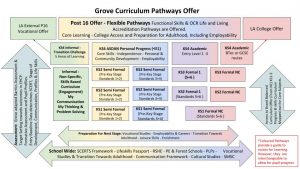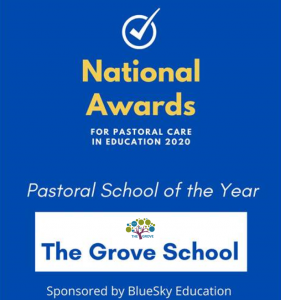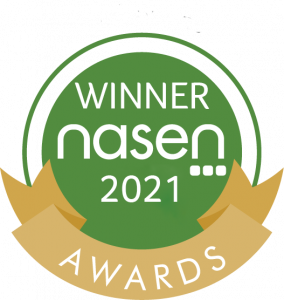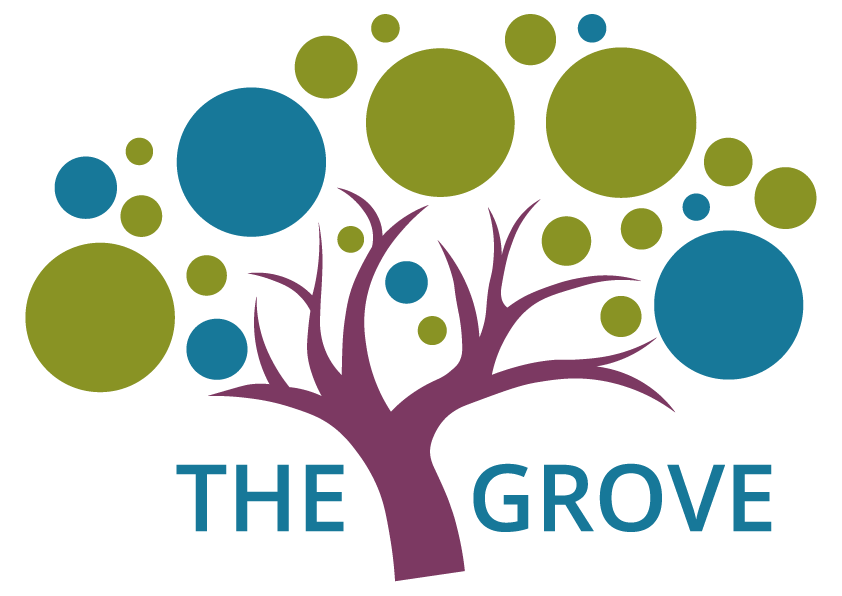Special Educational Needs and Disability (SEND) Information Report
Schools have a duty to publish a special educational needs (SEN) information report, which must be made available on their website. This is a requirement under the regulations and are set out in the SEND Code of Practice.
The following types of schools must publish the report:
- Mainstream schools, including maintained schools and academies that are not special schools
- Maintained nursery schools
- 16–19 academies
- Alternative provision academies
- Pupil referral units (PRUs)
- Special schools
You can download and read The Grove SEND information Report below:
The Grove SEND information Report
SEND Report November 2025.docx
The Grove Local Offer
SEN Report
You can read in more detail our SEN report above.
The school is part of the wider offer from Haringey. You can find out more about Haringey’s local offer here.
About our School
The Grove is a specialist school for pupils aged 5–19. We are a co-educational day school provision for young people with a primary diagnosis of autism.
Our planned admissions number for capacity of up to 125 pupils we are currently over-subscribed .
You can read more about our school in the Headteacher’s welcome here.
| 2022-2023 | 2023–2024 | 2024–2025 | |
| Primary | 38 | 37 | 39 |
| Secondary | 73 | 75 | 85 |
| Post 16 | 14 | 16 | 17 |
| Total Places | 125 | 129 | 141 |
Admissions
Admissions to The Grove are made through the Local Authority although referrals may also come from parents/carers, mainstream schools or other professionals.
A child much have an Education Health Care Plan and The Grove should be named on that plan.
The range of pupils at The Grove are those with a primary diagnosis of autism. They may have additional needs such as language and communication, sensory processing, specific learning difficulties, ADHD or learning difficulties.
Parents and carers are encouraged to visit the school during the admissions process to talk to teachers and staff and find out about what we do, this is an important part of the admissions process.
Pupils in any of the age ranges may be admitted at any time during the year if places are available. The most common transitions are those into KS1, KS3 or Post 16.
Pupils are admitted through the consideration of papers, assessments and observations. In cases where the school feels the child does not meet the criteria, or the school cannot meet their needs appropriately, the school may not offer a place.
Once placement has been agreed, we invite parents to meet with a teacher and we gather lots of information from you so we can start to put into place a transition plan. Transition plans may look different from pupil to pupil and will be written to reflect the child’s needs.
Read more about admissions here.
Ofsted and External Reviews
The school holds Advanced Autism accreditation for its standard in Autism Practice.
The school is rated as Ofsted Outstanding (2023)
The school is part of the special school’s network hub for Challenge Partners which is a practitioner-led collaboration to lead on school improvement via peer review.
We hold the Gold standard for Anti-Bullying through the Anti-Bullying Alliance and we have been recognised as the Pastoral School of the Year 2020 by NAPCE and by NASEN 2021 for its co-production work with families. We hold Healthy Schools Status and have gained the Optimus Wellbeing Award and awards for our SMSC work and RSE work.
You can read our external reports here.
Vision and Values

In the pursuit of our school vision our aims will be demonstrated through:
- Our persistence to provide an outstanding teaching and learning environment for all where achievement is recognised and valued
- Our determination to inspire a love for learning and a culture of collaboration and communication where barriers are challenged
- Our recognition of every individual’s potential and ensuring a personalised education to nurture this
- Our commitment to secure independence at all levels for each and every learner in preparation for life beyond school
- Our promise to value and respect individuality and promote well-being through acceptance and belonging
- Our responsibility to place our learners and their families at the center of their decision making
- Our dedication to partnership working internally, externally and nationally so we can deliver a truly integrated approach
Our Core Values are reflected in our SEARCH for Success Ethos:
- Support
- Empathy
- Acceptance
- Resilience
- Compassion
- Honesty
Our Core Values underpin the culture of our school provision providing clarity to what we will expect from each other in pursuit of reaching our Vision and Aims.
Curriculum
Our school curriculum is person centred and offer pathways for pupils to learn from personalised programmes.
Our aim is to ensure the whole need of each child is met through a comprehensive programme that addresses their academic learning whilst also supporting those difficulties that arise from their autistic spectrum diagnosis.
Our school curriculum is designed to cover the broad range of learning needs and difficulties within a range from early developmental stages through to potential GCSE courses or equivalent.
The curriculum is organised and delivered differently for different year groups and includes:

The curriculum is organised into different pathways
- The Informal Curriculum
- The Semi-Formal Pathway 1
- The Semi-Formal Pathway 2
- Formal Curriculum Pathway 1
- Formal Curriculum Pathway 2
Subject areas are taught either through topics or as discrete subject areas and will include
- Literacy
- Numeracy
- Science
- Humanities
- Expressive Arts
- Performing Arts
- PHSE, Citizenship, RSE
- SMSC
- Social and Emotional Learning and Life Skills
You can read more about our curriculum here.
Teaching and Learning
Teaching and learning is structured and tailored to meet the needs of our pupils at our school. Class sizes are small; there is a high staff to pupil ratio meaning high levels of support is provided. Sometimes there are small groups for learning, sometimes there are 1:1 teaching sessions, these will depend on the child’s level of need and development.
The teaching environment is structured and very low arousal; we understand that our pupils learn better through first hand experiences, through repetition and practice and through a structured and consistent approach.
Some of the approaches that are adopted at The Grove include
- SCERTS (Social Communication, Educational Regulation, Transactional Support)
- PECS (Picture Exchange Communication System)
- Use of SVN (Subject, Verb, Noun) Communication
- TEACCH (Treatment and Education of Autistic and other Communication Handicapped Children)
- Sensory Integration (SI)
- Attention Autism
- Makaton signing and symbols
- Intensive Interaction
- Team Teach (Physical Intervention)
- Positive Behaviour Support (PBS)
- Zones of Regulation (ZoR)
- Differentiation of the National Curriculum and its assessment
- Mentoring
- Augmentative and Alternative Communication (AAC)
You can read more about our approaches to teaching and learning here.
Teaching and learning is supported through a multidisciplinary approach where joint working between teaching staff and the Speech and Language Therapist and Occupational Therapist to ensure pupils are supported to access the school curriculum and day to day learning.
Read more about Speech and Language Therapy
Read more about Occupational Therapy
We work closely with a therapeutic team that consist of a range of therapies within the school such as music and art therapy. We work closely with the LA Educational Psychologists to ensure appropriate packages of support are implemented for pupils who require it.
Our emphasis is on developing high quality teaching and learning. We see session planning and preparation as a key element in this process.
Planning for individual learning takes place in a variety of formats which include;
- Personalised learning plans which include
- Pen portrait
- EHCP targets
- SCERTS targets
- Academic and life skills targets
- Positive behaviour support plan (PBSP(
- Personal handling plans (PHP)
- Risk assessment (if there is a PHP)
- Medium term planning and differentiation
- Therapy plans
Measuring Progress and Informing Parents and Carers
We use a variety of assessment processes to measure and record progress for every pupil. Parents and carers are informed of their child’s progress at key PLP meetings each term and also at the Annual Review which takes place once each year. Assessment starts from the moment a child starts at The Grove and will continue until the time they leave; the process includes;
- Baseline on entry assessments
- On-going curriculum assessment on our Earwig system
- SCERTS profile, targets, assessment and tracking
- Life Skills Passport
- Personal Learning Plans (PLP)
- The use of Engagement Levels, National Standards and National Curriculum expectations
- Annual Reviews
- Termly Target Setting (which include MDT and Parents/carers)
- Formative assessment against termly targets
- Tag and Track Evidence portfolios
- Well-being data and analysis
- Work Samples and moderation
- Transition Plans
- Transition Towards adulthood Plans (from Year 9+)
- Attendance data analysis
It is important to recognise that for many of our pupils, progress may not just be academic performance but will encompass a wide spectrum of skills and learning. These may include progress that:
- Matches or betters the student’s previous rate of progress
- Ensures access to the full curriculum despite their complex difficulties
- Demonstrates progress in ‘skills for life’ such as independence, social or personal skills
- Demonstrates progress in their social communication and emotional regulation
- Demonstrates progress in the student’s behaviour (this may include their ability to maintain an educational placement and enjoy being at school)
- Demonstrates progress in the student’s well-being and mental health which enables them to be part of their school, family and wider community in a purposeful and meaningful way.
Staffing and Professional Development
The Grove school is committed to providing high quality specialist teachers and staff. We achieve this through rigorous development and an ethos of promoting and learning new skills, extending specialist knowledge of current practice and through opportunities to learn within research and development in the field of autism.
The school is part of the Pan London Autism Schools Network (PLASN) which is attached to the Research team (PLASN-R) at the Centre for Research in Autism and Education, this enables current and updated practices to be implemented and developed by staff.
There is a continuous provision of training and the updating of skills within the staff teams through
- sharing of expertise and work with wider professionals.
- Peer reviews
- Comprehensive induction
- In-house training
- External Training
- Support for research and further study
Pastoral Care
Our ethos and approach to pastoral care is a belief that it is as important to support our parents, carers and families, as it is to nurture our pupils. Our pastoral team is available to give advice and support to families to ensure consistency and continuity of practice. The team works closely with relevant professionals and specialists and be able to identify specific services as required.
As part of our family support and parental engagement service, we support families at home through a series of workshops, training events and home visits. Home visits are available throughout the school year and can be requested by families who want extra support. These visits are conducted by the pastoral team with relevant support from staff, professionals or any of our school based therapists.
Read more about our Pastoral offer here.


Working in partnerships with parents and families
Partnership working is the essence of the way we work at the school. Our approach ensures that all staff, multidisciplinary teams, families and pupils work together to achieve the best outcomes.
Families are included at every stage of the planning and target-setting process. We will hold termly parent consultations to provide an opportunity for parents to meet all teachers and discuss their child’s progress. Information from the student progress meetings will be shared at this point. PLPs will be reviewed at these meetings as well as at the annual review meeting.
Families are expected to keep the school informed of relevant information that may impact on the teaching and learning of their child. We encourage information sharing as part of our strong belief that a two-way flow of communication ensures a child gets the best from his or her time at the school. There is a half termly newsletter that goes home to parents and each child has a home school diary for both class teams and parents/carers to communicate through on a daily basis.
Our commitment to partnership working is consolidated by our Home–School Agreement. The expectation is that home and school sign up to the mutual agreement so that expectations around partnership working are clear from the onset.
We are very proud to have won the NASEN award for co-production working with young people and their families 2021.
Working with professionals
The essence of successful outcomes is successful partnership working in a trans-disciplinary approach and extending multi-agency work across as many fields as required for an individual child.
The school has access to a multi-disciplinary team on site for staff to draw on their expertise and ensure successful integration of therapies across the school day.
Because our pupils tend to have complex needs, there often are many professionals involved working with them and their families. The school is a hub for multi-agency meetings and professional dialogue, particularly using the established Haringey Signs of Safety model. An extensive team includes;
- CAMHS services
- Social Services teams
- MASH teams
- LAC teams
- Autism and specialist professionals
- Careers services
- NHS teams
- Local schools and colleges
- Community Police and services
- Educational Psychology Service
- Visiting Therapists
- Multidisciplinary Teams
Facilities at The Grove
The new building at Downhills Park Road is a brand new, fully refurbished site designed with the needs of our learners in mind. It is fully accessible to all and includes;
- Disabled access and lift
- Flexible spaces
- Low arousal environment
- Accessible signage
- Acoustic systems
- CCTV and security
- Disabled toilets and access to all floors
Specialist Resources Include
- Multi-sensory Room
- Soft Play Room
- Water Play Room
- Life Skills Flat
- Food Technology Room
- Activity Studio
- Art/DT and Art Room
- Music Tech Room
- Learning Resource Centre
- Assembly Hall / dining with acoustic systems
- Forest School
- Outdoor Gym
- Outdoor Trampolines
- Outdoor sensory equipment
- Access To kitchenettes for class snacks
- Quite Rooms
- Fully fitted teaching walls
- School Minibuses
Educational Visits and Enrichment
Enrichment plays an important part of our offer. We use the local community on a daily basis to compliment the teaching and learning and curriculum, this supports pupils to generalise the skills they learn in the classroom. Local community spaces include;
- Supermarkets
- Sports and Leisure centres
- Libraries
- Cinema and Theatre
- Cafes and restaurants
We offer a residential trip to secondary students at the YHA activity centre. This is an important part of developing key life skills, personal skills and independence. We may run a number of trips through the year, each with a different focus.
Allocation of Services
- On the basis of individual need
- On the basis of individual entitlement as outlined with the Educational Health and care Plan
- Access to the curriculum, allocation of staffing and additional support
Transport
Pupils are entitled to apply for free transport to the Special Educational Needs Department of the Local Authority. You can find a link for Haringey Transport applications here.
If approved, the pupil will be transported to and from school each day. Parents and carers will need to liaise directly with transport services if there are changes, such as your child is ill. Each bus has an escort who acts as an informal contact between home and school, they will pass on information and small deliveries, such as messages.
School Meals
School meals are considered a teaching time to develop social communication skills, functional skills and the promotion of learning around meal times. This is adapted according to need.
Cultural and religious requirements are respected and we ask that parents and carers let the school know of any additional requirements, all meat is Halal and we follow a meat free Monday timetable.
School meals are paid through our Parent Pay system, our school office will supply you with a login code. You then upload money onto the system, we operate a school meal deal system each day, there are no itemised items.
Families on income support can apply for free school meals. Please contact Children’s Services or visit the Haringey website here.
Alternatively you can contact our school office and we will help you with your application.
School Uniform & Equipment
Students are expected to wear the school uniform. We encourage them to wear their uniform with pride as it promotes a sense of community and belonging at the school. Uniform can be ordered online through our supplier Goodies via their website www.gooddies.co.uk
We only carry a few items at school so if you have difficulties with ordering, please contact the school office for support with the online system.
Primary Uniform
- White school polo shirts – to be purchased online at Gooddies
- School sweatshirt – to be purchased online at Gooddies
- School fleece – to be purchased online at Gooddies
- Black trousers, jogging bottoms, black skirts – purchased independently
- Black shoes
- School rucksack is available if you wish to purchase online at Gooddies
Secondary Uniform
- White shirt (boys) white blouse (girls) – purchased independently
- School jumper – to be purchased online at Gooddies
- School blazer – to be purchased online at Gooddies
- Black trousers, black skirts – purchased independently
- Black Shoes
- School rucksack is available if you wish to purchase online at Gooddies
PE Kit
- Light blue polo shirt (These can be purchased with the school logo through the school or purchased independently)
- Navy blue jogging bottoms or leggings.
- Navy sweatshirt (These can be purchased with the school logo through the school or purchased independently)
Swimming Kit
- Swimming shorts OR swimsuit
- Towel
- Goggles (If required)
- Toiletries for showering
School Equipment
Some students like to have their own school equipment, particularly at secondary. Here is some equipment your child might like to bring:
- Black pens
- Pencil
- Rubber
- Pencil sharpener
- Ruler
- Reading book
Snacks
As part of daily life skills practice, we make and prepare simple snacks each day. We do ask for a voluntary contribution of £5 each half-term towards this.
Alternatively some parents and carers prefer to send a daily snack in for their child which they will eat with their friends at the same time.
In every instance we promote healthy eating. We would ask you to NOT send in any snacks that are
- Sweets
- Chocolate
- Fizzy drinks
- Crisps
Home School Agreement
We continually aspire to encourage the SEARCH for Success culture among our students, staff and wider community so that each and every person can fulfill their potential and develop the skills to make a positive contribution to society.
At The Grove, we believe that these aims are more likely to be achieved if there is a strong partnership between home and school, based on mutual trust, consideration and understanding.
This partnership must be built upon:
- Trust
- Communication
- Openness and honesty
- Support and understanding
- Working together towards shared goals
This is achieved by a strong, transparent partnership based on shared values, beliefs and goals and is supported by our commitment to our home-school partnership.
As part of the commitment to a shared partnership we have a home-school agreement. By signing the Home – School Partnership Agreement each party commits to the shared responsibility to work together alongside wider professionals and the community ensuring the very best outcomes for each child.
Parents and carers receive a copy of the Home-School agreement during their admissions meeting. A member of staff can talk you through it and answer any questions you have.
Support for Parents, Carers and Families
We think this is a crucial element for the progress of our pupils. We do not have the daily contact with our parents and carers that many schools are lucky enough to have, so we ensure we have systems in place to make communication and partnerships effective. These include;
- Open door policy – parents and carers are welcome to meet with teachers or senior leaders at a mutually convenient time
- We have representation on our governing body from parents
- We have a family support service offering support, home visits and providing linked worked between home and school and outside professionals
- Parent, carer and family training sessions are run throughout the year
- Parent and carers coffee mornings are run throughout the year
- Daily home-school book. There is an expectation that parents/carers use this book to communicate regularly with their child’s teacher and class teams.
- Parent and carer consultation meetings – theses take place three times a year for joint discussion around your child’s personal learning plan.
- We run a text messaging service for up to date information and reminders for parents & carers
- There is a half termly newsletter with updates and key information, this is circulated to each child to bring home and is also available on our school website under the news section.
- The school website is a useful source of information about daily school life, updates and organizational information such as guidelines and policies.
- Support is also available through Haringey Disabled Children’s Team (DCT) for parents, carers, families and pupils who are experiencing difficulties such as financial difficulties, issues around mental health, relationships or anything that is preventing progress to your child.
- We run signs of safety multi-agency meetings at school to discuss children who might be at risk and the DCT and multi-disciplinary teams are involved with this.


